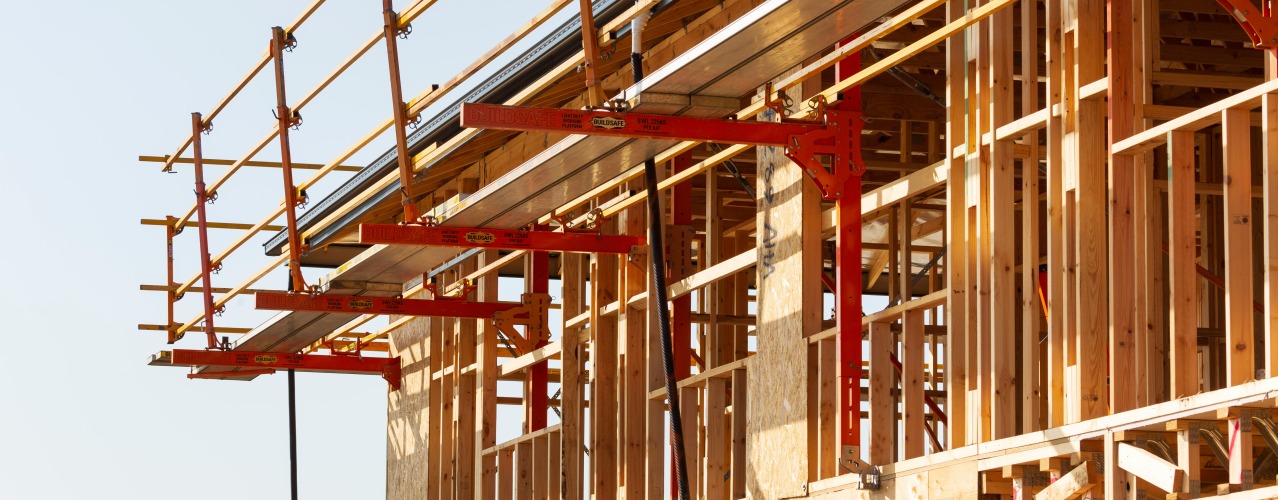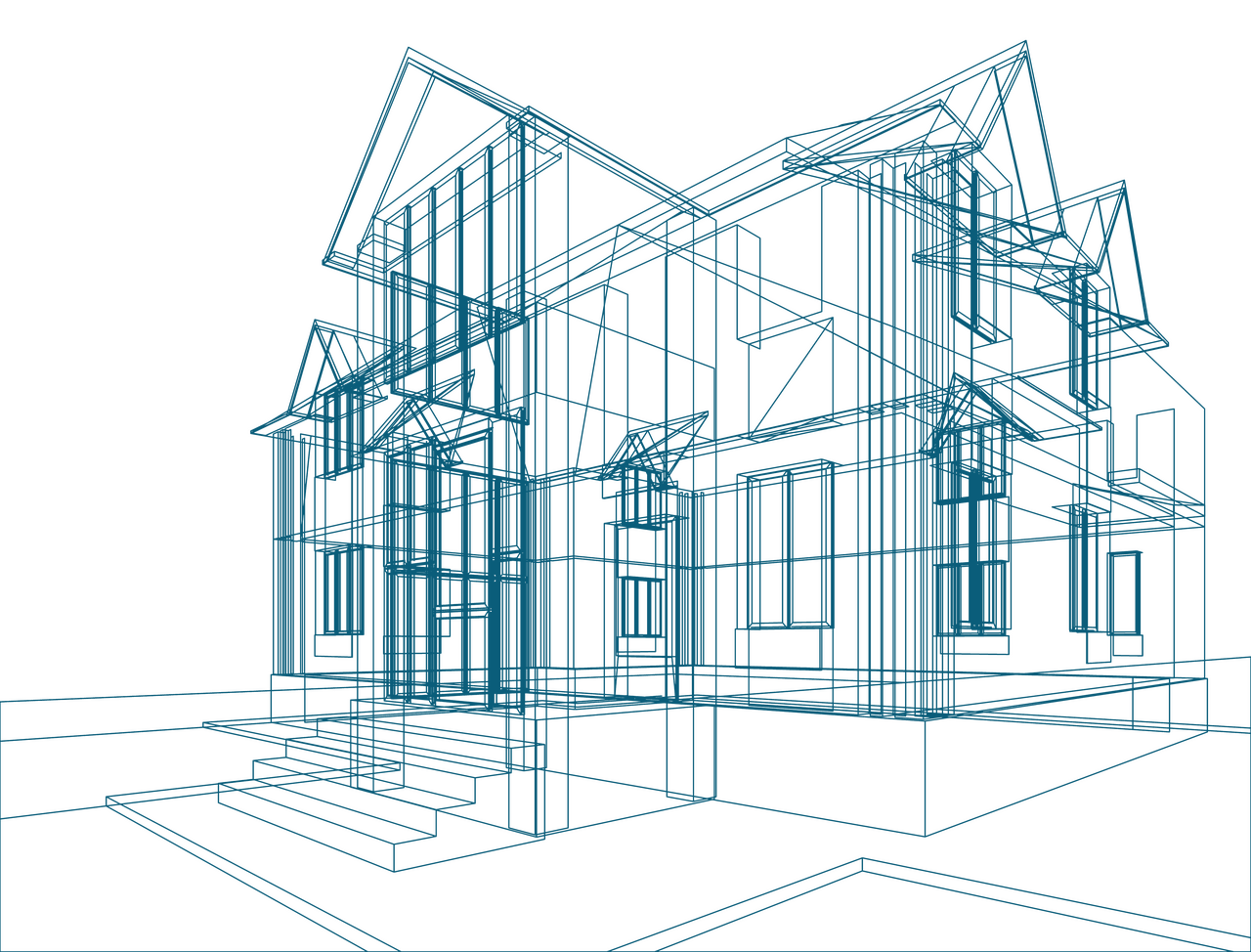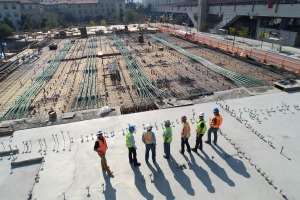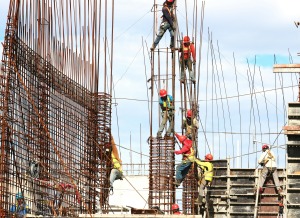


Market report
Future-Proofing Construction: Building Trends
Gain insights into the latest building material trends shaping the European construction market. Reports analyze industry shifts, sustainability trends, and future building volumes based on surveys with 750+ architects.
Blogs I published 26 July 2024 I Dirk Hoogenboom
Building Materials Trends for 2025
Building anything in the past years – be it a DIY-birdhouse, a cozy home or a state-of-the-art skyscraper – has undergone a fairly comprehensive reshaping. Virtually every stage of development, from planning to construction, has seen its share of changes, however the most constant challenge has been the price of materials. A number of things factored into this equation, with a pronounced volatility reigning supreme in the market. So, let’s look at how these trends play out.


Past Context of Building Material Prices
The million-dollar question, hanging heavy in the air is – will prices finally stabilize or are we in for another exponential climb? However, in order to understand where we’re headed in the foreseeable future, it’s vital to find out how we got here. So, we’ll rewind and look at key events that shaped this cascading effect on material costs. An unfortunate global disruption triggered a chain reaction, so let’s explore exactly what led to the tailspin.
COVID-19
Needless to say, a global pandemic rippling into every aspect of everyday life and throwing a wrench into many industries was an immense and sudden pressure on the market. While it’s now slowly recovering from a hefty hit, some sectors are still getting over the aftermath; construction being one of them. An unforeseen spike in demand collided with significant supply chain issues, causing raw material prices (like lumber) to skyrocket.
Ongoing Global Struggles
In the past three years, geopolitical tensions and crises (i.e. the Russo-Ukrainian war) have had a profound impact on the market. Construction experienced further disruptions in supply chains with gas and oil prices surging as a result of the conflict. Since many building materials are closely tied to fossil fuel costs, in terms of production – think steel, aluminium, roof tiles, masonry bricks, namely, big melters and heaters – a strain at the source spans throughout the entire supply chain.
Distribution and Transportation Costs
Say you have a factory full of bricks – already more expensive than usual due to rising production costs – and need to offload some of the volume. Now factor in getting them to a construction site. The transportation doesn’t come cheap, especially when soaring gas prices are layered on top of existing fuel costs used in production. Higher costs of transporting materials get passed down the line, ultimately impacting consumers through increased prices.
Persistent Demand
Despite the various challenges, demand for building materials has remained high, meaning that even with supply chain improvements and other economic shifts, prices have not decreased as much as some might have hoped. The market is still adjusting to prolonged periods of high demand, maintaining elevated prices for many materials.


Post-Pandemic Price Trends
As we move through 2025, the construction market continues to stabilize after the fluctuations of recent years. High interest rates persist, curbing the initiation of new projects and moderating global demand. Prices of gas, oil, and raw materials have shown a steady decline, but this trend has not translated into immediate, significant cost reductions. Manufacturers remain cautious, maintaining production levels and preventing abrupt price drops in building materials. This deliberate approach has led to a gradual and consistent adjustment in prices, fostering a more measured stabilization rather than a sharp downturn.
Prognosis – 2025 and Beyond
Come 2025, we have expected, and to some extent experienced, stabilization in material prices. While the early part of the year may have featured relatively weak prices, a gradual increase is anticipated due to ongoing demand and market stabilization. Prices will vary significantly depending on the type of material, so let’s go over specific materials and expectancies.
Structural Steel
Mainly in the US, but with great similarities, Q4 of 2023 experienced a 6.85% quarter-over-quarter increase, yet remained below the highs of 2022. With 2024, Q1 wasn’t set for a significant change to Q4 2023 – with a year-over-year decrease of 3.75%. Q2 is expected to see a 3.80% decrease.
Copper
While there was a dip in mid-2022, copper prices have generally been trending upwards. This is projected to keep rising due to ongoing demand. However, data shows a surprising price drop for Q2 2024, 10.83%, highlighting the volatility of the market even amidst favourable long-term trajectories.
Concrete Block
A rebound is anticipated in the latter half of 2024 as economic outlooks improve. The hurdles of early 2024 are taking a back seat while supply chain issues are expected to resolve. Later in the year, we expected significant growth, spanning into 2031.
Lumber
A topic we’ve covered in detail elsewhere, lumber is expected to boom. Data indicates a promising trajectory for the lumber market, with a growing preference for wood as a building material across various construction sectors. This shift, combined with ongoing construction activity and a renewed focus on sustainability, positions the industry for sustained growth.
Aluminium
As the financial year draws to a close, analysts are predicting an upswing in the aluminium market. We’re likely to see a confluence of factors creating a year-end surge, fuelled by both seasonal strength and restocking activity.


Influence of Global Markets and Trends
Global market dynamics, particularly the volume of demand in China, will play a significant role in shaping material prices. As one of the largest consumers of raw materials, China’s market activities have a ripple effect worldwide, so any changes in their demand will significantly impact global prices.
Additionally, inflation’s grip hasn’t loosened on building materials just yet. While the overall inflation rate is showing signs of cooling, its impact is still driving up construction material costs. Even though we might see some relief in the future as inflation stabilizes, expect to see generally higher prices for materials throughout 2025.
The Takeaway
After the price volatility of recent years, building materials in 2024 are expected to see a welcome trend of stabilization. However, this doesn’t mean a return to pre-pandemic affordability. Manufacturers are cautiously adjusting production, leading to a gradual price normalization rather than dramatic drops. While some materials like structural steel might see a slight increase, others like copper could experience short-term fluctuations. The concrete block market is poised for a rebound later in the year, while lumber and aluminium are expected to see growth fuelled by demand and seasonal factors. China’s demand for raw materials and global inflation rates will continue to exert influence on prices throughout 2025. Overall, keep prepared for generally higher material costs compared to pre-pandemic levels and stay informed about specific materials and market trends to stay on top of current trends.
Construction Consulting Services for You
We provide tailor-made market research and off-the-shelf reports, both B2B & B2C, qualitative and quantitative. Here are some you might be interested in
Uncover new market vistas through meticulous analysis and foresight.
Leverage market insights to fuel innovative product creation.
Gauge the market expanse to set realistic targets and optimize resources.

Fresh Insights Await
Our relevant reports
Delve into the newest findings across various market segments, crafted for a cutting-edge overview. Explore our insightful reports, brimming with up-to-date data, trend analyses, and in-depth examinations, all tailored to provide you with a comprehensive understanding of the current market dynamics.
Construction
Home Improvement
Installation
Special reports
Construction
Smart Materials and Buildings Q4 2024
2024 85 pages
Explore the evolving future in construction sector among European architects in Q4 2024. Delve into the factors driving material preferences and the impact on construction aesthetics and sustainability.
2,000 Euro
Construction
Digitalisation and BIM H2 2024
2025 64 pages
Uncover the preferred purchase channels of contractors in H2 2024, and understand how purchasing behaviors evolved. This report provides insights into the factors influencing purchasing decisions among contractors.
6,000 Euro
Construction
Decision making process Q3 2024
2024 87 pages
Unveil the decision-making processes in the construction industry through the lens of European architects. Discover the factors that influence crucial decisions and the interplay among different stakeholders.
2,000 Euro
Construction
Prefab H1 2024
2024 63 pages
Discover the adoption rate and benefits of prefabrication technology among European contractors in H1 2024. Understand the driving forces behind prefab usage and its impact on project efficiency and cost-saving.
6,000 Euro
Construction
Future of construction Q2 2024
2024 82 pages
Explore the evolving future in construction sector among European architects in Q2 2024. Delve into the factors driving material preferences and the impact on construction aesthetics and sustainability.
2,000 Euro
Construction
Sustainability 2024
2024 72 pages
Painter Insight Monitor 2024 will focus on understanding the specific needs, preferences, and challenges faced by painters when it comes to sustainable products.
11,000 Euro
Home Improvement
DIY vs DIFM Q4 2024
2025 76 pages
Explore the prevailing trends between DIY and DIFM in Q4 2024. Understand consumer preferences and the factors influencing their choice between DIY and DIFM.
3,500 Euros
Home Improvement
Branding Q3 2024
2024 74 pages
Discover the power of branding in the home improvement sector. Explore how strong branding influences consumer preferences and purchase decisions.
3,500 Euro
Home Improvement
European Garden Monitor
2023 43 pages
Explore the European Garden Monitor, a comprehensive platform dedicated to garden health monitoring in Europe. Access valuable resources and expert advice today.
12,000 Euro
Home Improvement
Purchase channels Q2 2024
2024 90 pages
The European Home Improvement Monitor offers valuable insights on purchase channels in the European home improvement industry, examining the evolving preferences and behaviors of consumers across traditional retail and emerging online platforms.
3,500 Euro
Home Improvement
Sustainability Q1 2024
2024 81 pages
Delve into sustainability trends in the home improvement sector in Q1 2024. Discover consumer preferences and the shift towards eco-friendly home improvement solutions.
3,500 Euro
Home Improvement
DIY versus DIFM Q4 2021
2024 113 pages
This report is a must-have if you’re in the home improvement industry. It provides a wealth of information on the behaviour of DIY and DIFM consumers, their motivations, and the factors that influence their purchasing decisions.
3,150 Euro
Installation
Training needs Q1 2025
2025 100 pages
This report offers an overview of installers’ habits and preferences concerning their education. Furthermore, the report encompasses the pervasive challenge of workforce shortage and explores the sector’s strategies for resolving this issue.
3,250 Euro
Installation
Media orientation Q4 2024
2025 128 pages
The European Mechanical Installation Monitor report provides a detailed analysis of the plumbing and HVAC industry. This report specifically focuses on Media Orientation in the industry.
2,800 Euro
Installation
Services in the installation sector Q4 2024
2025 102 pages
This report provides a comprehensive view of the installer's requirements for services from manufacturers. Within the report, you will find information on the most needed services in each category: commercial processes, engineering, products & installation, and repair & maintenance. It also examines the services that installers offer to their customers.
3,250 Euro
Installation
Prefab Q3 2024
2024 110 pages
Uncover the adoption of prefabricated products in HVAC installations during Q2 2022. Delve into the benefits and challenges associated with prefabrication in HVAC.
2,800 Euro
Installation
Prefab Q3 2024
2024 119 pages
This report offers a comprehensive view of the installers’ involvement and needs regarding prefabricated electrical installations.
3,250 Euro
Installation
Smart & Connected Products Q2 2024
2024 120 pages
This report provides a comprehensive view of the attitudes of installers toward smart building solutions, specifically among electrical installers and their clients. In the report, you will find insights into the installers' experiences with installing smart products and the willingness of end users to invest in such solutions, as well as their motivations and pain points.
3,250 Euro
Special reports
European Sustainability Report 2024
2025 51 pages
This report provides in-depth insights based on triangulation of key market information and data as well as data from USP Marketing Consultancy’s key monitors that are carried out year in, year out. The focus of this report is on the most important stakeholders within the construction industry, namely architects, contractors, electrical and HVAC installers within The United Kingdom, The Netherlands, Belgium, Germany, Poland, France, Italy, and Spain.
3,950 Euro
Special reports
European Sustainability Report 2024
2024 51 pages
This report provides in-depth insights based on triangulation of key market information and data as well as data from USP Marketing Consultancy’s key monitors that are carried out year in, year out. The focus of this report is on the most important stakeholders within the construction industry, namely architects, contractors, electrical and HVAC installers within The United Kingdom, The Netherlands, Belgium, Germany, Poland, France, Italy, and Spain.
3,950 Euro












